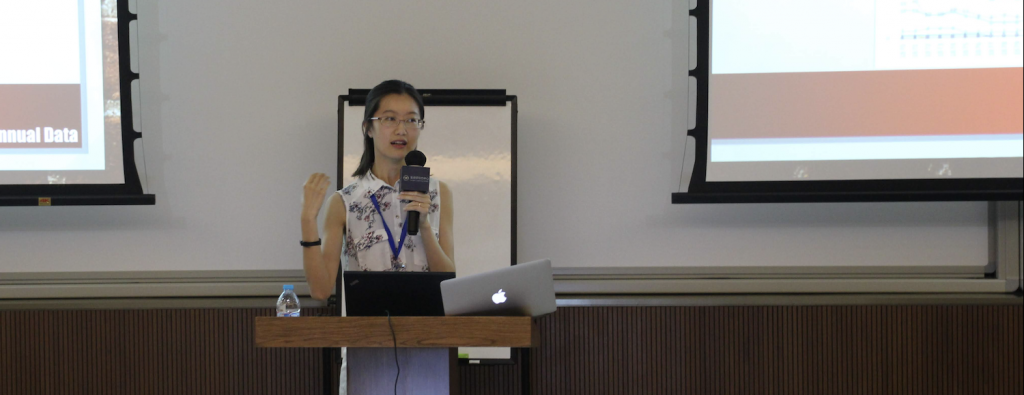Jiajia Liu is a third year PhD candidate investigating the "Financial Capitalism on the Periphery: the 'Rubber Boom' on the Shanghai Stock Exchange, 1908-1912." In this interview, Jiajia explains her research and what led her to explore this topic.
What is your research concerned with?
My research is a historical investigation of the Shanghai Stock Exchange at its very early stage when it was a symbol of Late Imperial China's encounter with Western--mostly British--financial capitalism. Whereas economic historical literature has devoted considerable attention to the phenomena of manias and crashes in both premodern and modern history, conspicuously less attention has been paid to the role of a distinct centre-periphery dynamic in the occurrence of peripheral boom/bust cycles. My research project is an attempt to fill in part of this gap. It focuses on the Shanghai ‘rubber boom’ (and bust), which occurred in the first decade of the twentieth century and explains the distinct characteristics of the early Shanghai Stock Exchange in a peripheral capital market. The Shanghai ‘rubber boom’ is taken as a catastrophic instance that illustrates how the very connections between central and peripheral markets (and their respective currencies) defined the boundaries that sharply divided both markets.
How have you been going about it?
After the Preliminary Thesis Dissertation in the second year of my PhD programme, I went to the UK and China to study the relevant archival materials from banks, municipal archives, university libraries, etc. with the support of the International History Department and other external sponsors. At the beginning of my third year, I visited Yale University in the US as a part of the Institute’s exchange programme. Conducting research in this prestigious institution enabled me to make full use of the library resources within its immense academic network, and provided me with the opportunity to work with leading scholars in my field of interest—Asian studies and economic history. Now in my sixth semester, I am back in Geneva, concentrating on writing my thesis, while also attending a wide range of conferences. This summer I will be going to the International Convention of Asia Scholars in Leiden, the Netherlands, with a group of International History PhD students, who are also interested in exposing themselves to the most inclusive international gathering in Asian Studies. Fortunately, this group participation is fully sponsored by the International History Department.
What led you to focus on this particular set of issues?
In the beginning, my research was very exploratory. By the end of my Master’s programme at the Graduate Institute, I was very much attracted to the library’s Capital Markets of the World Archives. This comprehensive archive provided me with a resourceful foundation and an ideal starting point to further investigate my research interest in the capital markets through a global lens. Stock exchange quotations, in London and Amsterdam for example, and the financial records of the Asian markets inspired me to begin my PhD journey in international economic history. What's more, the Institute’s vast digital collection of old English newspapers on Shanghai matches my personal interest in this international city where I lived for seven years.


